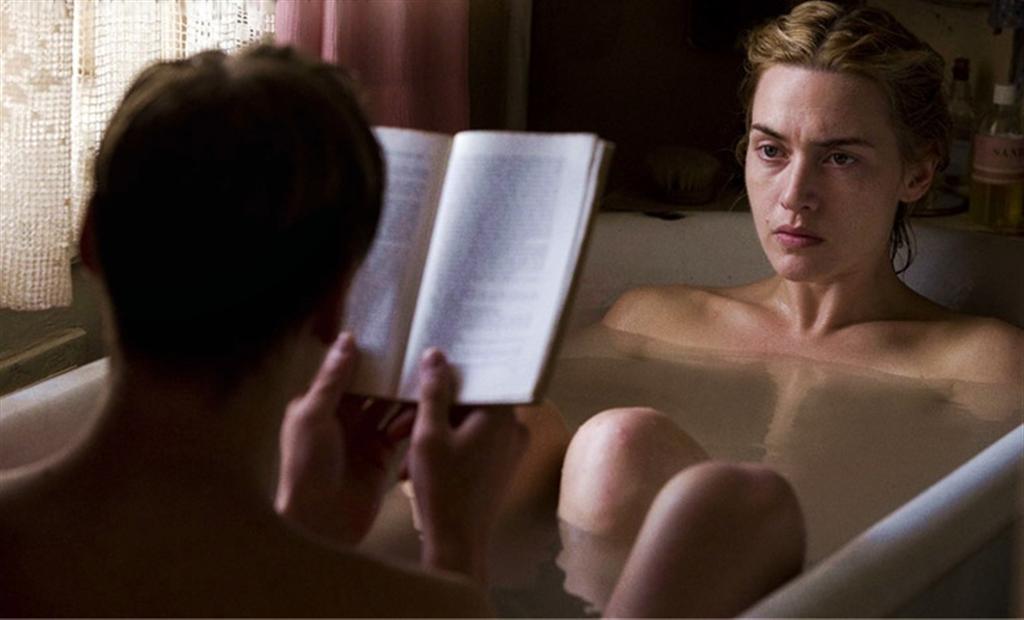Show! Don’t tell! An appraisal of The Reader.
Show! Don’t tell! Let the reader decide why the characters behave as they do. Keep them guessing. It’s what can turn a good book into a great one. But, to be honest, I didn’t think The Reader was a great book when I first read it about three months ago. The plot, I thought, was barely credible and the characters far too sketchy. That was before I saw the film.
You’ll know the story. It is 1958 in Berlin. Michael, just 15, meets Hannah in the porch of her apartment. It is raining, he is ill. She is kind to him. When he recovers some weeks later, he returns to thank her. They have an affair. Hannah, much older, is in control; she demands he read to her, then they make love, but their trysts end abruptly when she leaves suddenly without telling him.
Michael next encounters Hannah when he is a law student attending the war trials. He is shocked to recognize her as one of the prisoners. She was in the SS and was responsible with 7 other officers for transporting 300 Jewish prisoners. There was an air raid, the church in which their captives were locked, burnt down and all except one of them died. The guards could have opened the church doors but they didn’t. The other women accuse Hannah as the ringleader. They say that it was her who wrote the false report of the incident. To validate their claims, Hannah is asked by the presiding judge to provide a sample of her handwriting. Instead, she admits she wrote the report and is sentenced to life imprisonment.
But Michael guesses the truth. He realizes that Hannah is illiterate. That’s why she was so keen he read to her. She couldn’t have written the report. He could have saved her.
Some twenty years later, after his marriage has failed and he is living alone, Michael again reads to Hannah via a Dictaphone and sends the tapes to the prison. Hannah devours them eagerly and uses them to teach herself to read. It is her purpose and a kind of redemption. She has no family. When her time for release comes up, Michael is contacted to take care of arrangements for her, but he is reluctant. The night before he is due to pick her up, she hangs herself.
Stripped down to its essentials, this is a raw disturbing story. The plot is roughly sketched in broad brush strokes. The film, directed by Anthony Minghella, captures it brilliantly. Kate Winslet conveys the nuances of Hannah’s defensive secrecy to perfection. David Kross, who plays the young Michael, convinces as the callow youth ridden by guilt. The love scenes are tentative and caring without being salacious. But the greatness of this film and indeed the book resides in how it raises questions, days, weeks after the credits have wound down.
What was Hannah’s background? Where was she from? She had no family. What had happened to her parents? Why was she illiterate? Did she have no education? We suspect a deeply disturbed background, perhaps abuse.
And why did she join the SS as a guard? Was she afraid her illiteracy would be discovered. Was it this fear of exposure that caused her to run away from Michael. She had just been promoted from being a conductor on the trams to work in the office. Her shame would be discovered.
And why was her illiteracy such a deep source of shame that she would rather die than admit it. Did it represent another shame? Or was it more a fear that if she exposed her illiteracy, her vulnerability could be exploited?
Hannah is an enigma. Her secrecy is her protection and power. Those who are so fearful of being exploited themselves, tend to exploit other people. Hannah undoubtedly exploited the innocence of Michael for both sexual and intellectual gratification. She devastated his life. He could not love again. But darker still, there were hints from the trial that she would target the weaker of her captives, get them to read to her, perhaps gratify her lust and then select them for the gas chambers.
But could she have done that? We are sympathetic to Hannah. We see her through Michael’s eyes, a kind woman caught up in an awful situation. She is the victim of a miscarriage of justice.
We all need to know that the one we love is good and will care for us. We cling to the romance of it all, the make believe. The reality can be impossible to bear. So why didn’t Michael rescue her? Why did he say nothing? Did the trial strip away the illusion, expose Hannah as a human being who could perform the most evil deeds if the risk of not doing so demanded it. Michael had glimpsed her dark side. Did he fear her liberty? Or was it the shame of exposure that he feared? How could he admit that he had consorted, not only with a much older woman, but he had loved a war criminal and mass murderer?
The only way Michael could reconcile his obsessive and enduring love for Hannah with the awful truth was to conduct their relationship at a distance by reading to her and sending her the tapes. She was safe in prison. He could express his love with no risk to himself. But then, the stark reality of her release fractured the cover. He had to look after her. His ambivalence was obvious. How could Hannah commit herself to a dependant relationship with anybody, let alone a man who could no longer care for her unequivocally. It was impossible. How could she manage outside prison. She had to kill herself.
The Reader was released late last year. Kate Winslet was successfully nominated for Best Actress at the Oscars.



